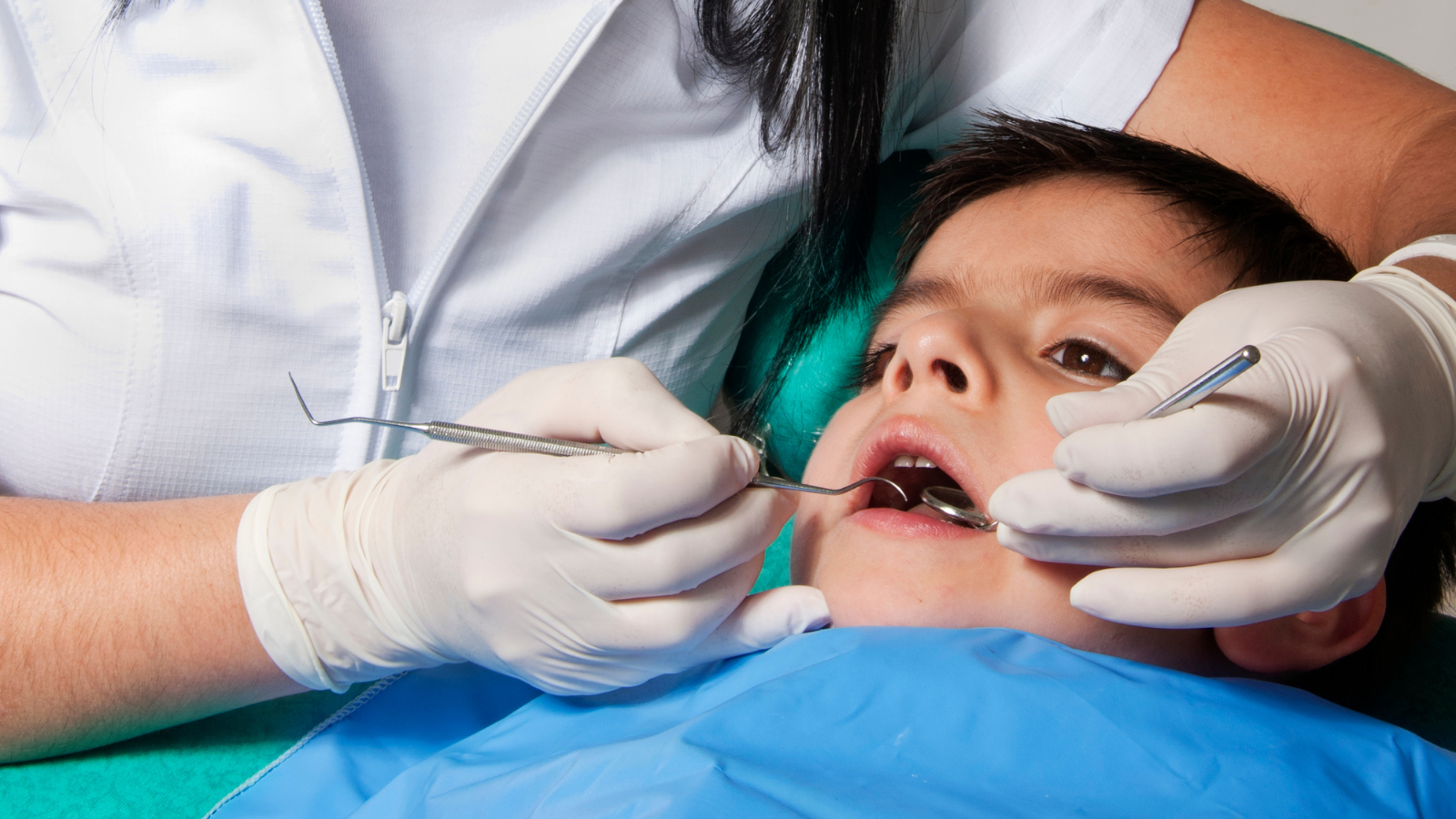With our funding, researchers at Queen Mary University of London have found that children living in areas with high levels of deprivation in North East London, are three times more likely to have severe tooth decay that requires dental extraction in hospital. The findings highlight the urgent need for equitable access to preventive dentistry.
Revealing major inequalities in preventive dental care
The study, published in BMJ Public Health, linked anonymised health data for 600,000 children between the ages of five and 16 living in North East London over a five-year period. They found that one in 200 children had at least one tooth removed under general anaesthesia. Most of those children had multiple teeth extracted.
Although this is a last resort, this procedure must be done in a hospital.
The study found:
- Children living in areas with the highest proportion of low-income households were three times more likely to need dental extraction in a hospital.
- Children from a White Irish, Bangladeshi or Pakistani ethnic groups were more likely to need dental extraction in a hospital.
Children were less likely to have had a hospital dental extraction if they were from areas with the lowest proportion of low-income households; from Chinese, White and Black African, Other Black, Indian, Other Mixed, or Black African backgrounds; or living with obesity, a finding the researchers acknowledge needs further investigation.
In this first of its kind study, the researchers were able to reveal new ethnic inequalities in children’s dental care. By linking hospital data to GP records, which included 16 categories for ethnic groups, they could demonstrate major ethnic and socioeconomic inequalities between White Irish and White British groups, and between Bangladeshi, Pakistani and Indian groups.
Previous studies have not analysed ethnic group categories at this detailed level before.
Severe tooth decay is preventable through access to NHS dentists, alongside wider public health interventions such as supervisedtoothbrushing in schools and controls on sugar in food and drinks.
Children in Tower Hamlets most at risk
The researchers also examined the data by North East London borough, comparing rates of children’s dental extractions with access to NHS general dental practitioners. After adjusting for deprivation and ethnic group, the highest risk of hospital dental extraction was for children in Tower Hamlets, which also has the lowest general dental practitioner attendance in North East London. Conversely, children living in Redbridge, Havering, and Barking & Dagenham had the lowest risk of hospital dental extraction – these areas have the highest proportion of five-year-olds accessing general dental practitioner services.
Additionally, the 2022 National Dental Epidemiology Programme (NDEP) oral health survey found that only 13% of decayed teeth in five-year-old children in London had been filled.
Linking health data from different settings has allowed us to see inequalities in the dental care system more clearly. Our findings point to an urgent need for equitable access to preventive general dental services, and interventions that are targeted at the wider determinants of dental health.Lead author, Nicola Firman, Health Data Scientist at Queen Mary
Sadly, our findings demonstrate wide socioeconomic and ethnic inequalities related to access to dental care and outcomes. Tooth extraction is a last resort, but when families have difficulty accessing timely preventive and treatment services, dental problems can progress until children need more serious and costly interventions such as multiple tooth extractions under general anaesthesia.Co-author, Vanessa Muirhead, Reader and Honorary Consultant in Dental Public Health at Queen Mary.
Bringing better healthcare to East London
For too many children in East London, a lack of access to preventive dental services is proving harmful. We support research that aims to tackle health inequality, bringing better healthcare to everyone in our community.


